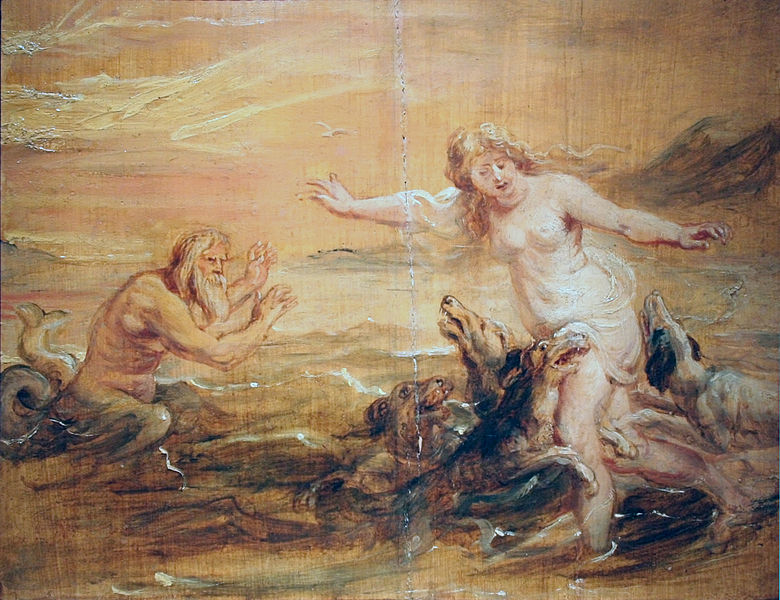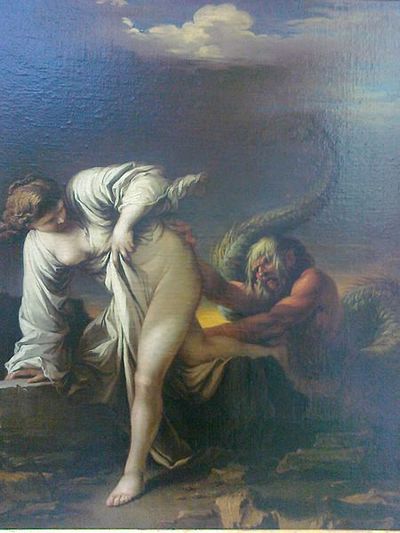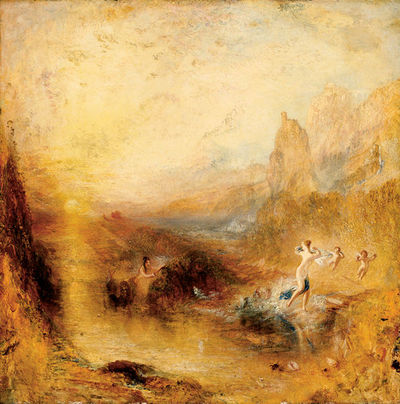Scylla and Glaucus
Scylla and Glaucus - Peter Paul Rubens (1577 - 1640) - Musée Bonnat
Date: 1636
Medium: Oil on panel
Dimensions: 26.5 x 32.7 cm
Medium: Oil on panel
Dimensions: 26.5 x 32.7 cm
|
Scylla and Glaucus is a painting undertaken by Peter Paul Rubens in circa 1636. Scylla and Glaucus is an oil on panel composition.
Peter Paul Rubens depicts the story of Glaucus and Scylla from Greek mythology, for Glaucus was a mortal who became a sea god, who subsequently fell in love with the beautiful Scylla. Scylla though rejected Glaucus, and so Glaucus sought a love potion from Circe, but instead Glaucus was given a poison that transformed Scylla into the famous Greek monster. More information about Glaucus can be found here - (website opens in new window) Peter Paul Rubens |
|
Born: 28 June 1577; Siegen, Germany
Died: 30 May 1640; Antwerp, Belgium
Nationality: Flemish
Art Movement: Baroque
Painting School: Flemish School, Antwerp School
Died: 30 May 1640; Antwerp, Belgium
Nationality: Flemish
Art Movement: Baroque
Painting School: Flemish School, Antwerp School


